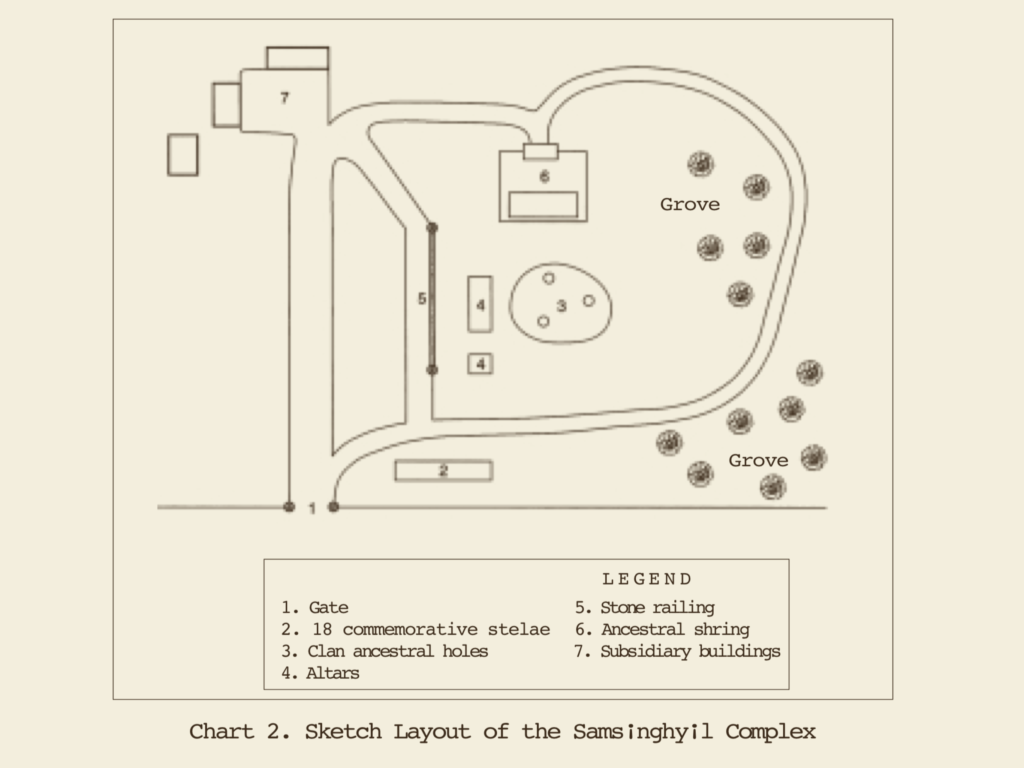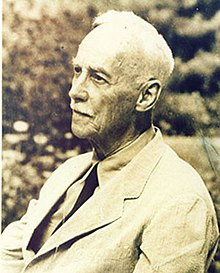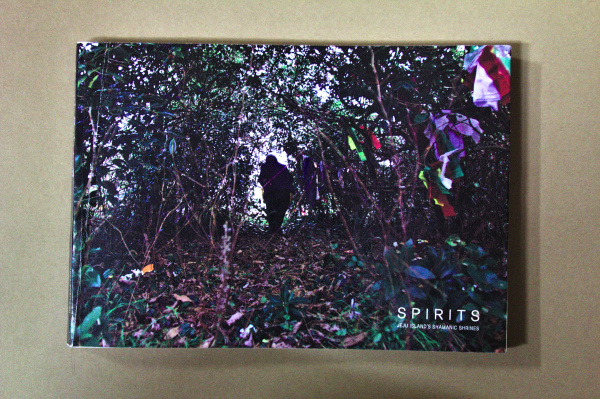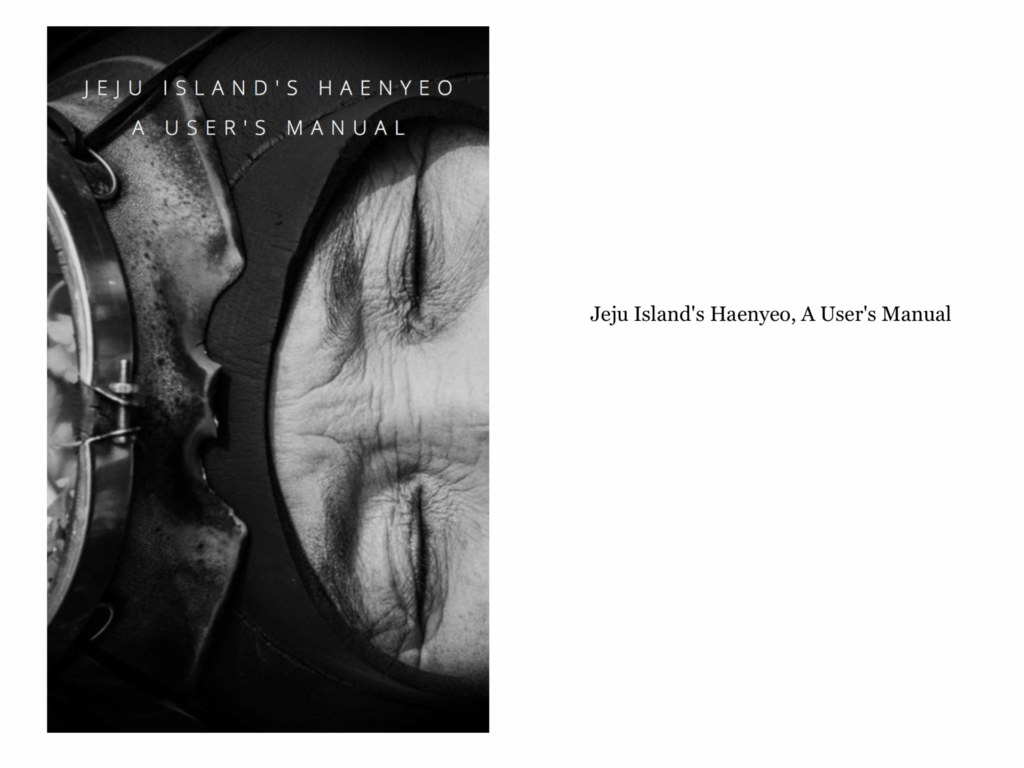Chin Song-Gi – 진성기 – has written dozens of books and articles on the religion, myths, legends, folk beliefs and traditions of Jeju Island. The only English-language publication of his is an article on shamanism that was published in the Korea Journal in August, 1977. Tangsin: Cheju Shamanism can be downloaded for free at the Academy of Korean Studies website.
David Nemeth has written extensively on the history and culture of Jeju Island. His work covers pungsu (Korean geomancy, or feng-shui) and sacred landscapes, stone statues and guardians, historical accounts by foreign travellers, graves and gravesites, pig-sty privies, the Neo-Confucian influence of the Yi dynasty on Jeju, and insights from his time on the island as a member of the U.S. Peace Corps. His papers can be freely accessed at researchgate.net – here.
Joey Rossitano is an author and documentary film maker who researches and writes about shrines, shamanism and traditional culture on Jeju. He has produced a stunning and informative photobook and several documentaries about Jeju’s haenyeo, shamans and villagers who carry on ancient traditions. His work can be viewed at pagansweare.com.
Tommy Tran is a lecturer at the University of California. He has written extensively on Jeju’s culture and history – check out his blog – Jeju Palimpsest. His article Acquired Tastes: Urban Impacts on Jeju Shamanic Ritual (The Review of Korean Studies – 2018) can be downloaded for free at the Academy of Korean Studies website. Imagining Urban Community: Contested Geographies and Parallax Urban Dreams on Cheju Island, South Korea can be downloaded for free from the UC Berkely website.
Robert Neff is an author, freelance writer and historian who is a regular contributor to The Korea Times. Search their website for his many fascinating articles that cover topics related to Jeju. Check out his books on Korean history: Letters from Joseon: 19th Century Korea Through the Eyes of an American Ambassador’s Wife, The Lives of Westerners in Joseon Korea and Korea Through Western Eyes.
James H Grayson, emeritus professor at the University of Sheffield, wrote a fascinating paper entitled Foundation Myths, Sacred Sites and Ritual: The Case of the Myth of the Three Clan Ancestors of Chejudo Island, which was published by the Korea Journal in 1998 and can be downloaded for free at the Academy of Korean Studies website.

Brenda Paik Sunoo has written two books about Jeju: Moon Tides: Jeju Island Grannies of the Sea, about haenyeo – Jeju’s women divers, and Stone House: Improvising Life Under a Healing Moon, about her experience building a home on the island. Her website features photographs, a blog, artwork and videos.
Lisa See wrote a novel based on the lives of Jeju’s haenyeo. “The Island of Sea Women offers up an evocative tale of two best friends whose bonds are both strengthened and tested over decades by forces beyond their control. Set largely on the remote Korean island of Jeju, The Island of Sea Women follows Young-sook and Mi-ja, girls from strikingly different backgrounds who bond over their shared love of the sea….”
Kyoim Yun‘s The Shaman’s Wages was published in 2019. From the description at the University of Washington Press website: Breaking from previous scholarship on Korean shamanism, which focuses on mansin of mainland Korea, The Shaman’s Wages offers the first in-depth study of simbang, hereditary shamans on Cheju Island off the peninsula’s southwest coast. In this engaging ethnography enriched by extensive historical research, Kyoim Yun explores the prevalent and persistent ambivalence toward practitioners, whose services have long been sought out yet derided as wasteful by anti-shaman commentators and occasionally by their clients.

William Franklin Sands wrote a chapter entitled The Amazons about his role in surpressing an uprising in Jeju in 1901, in his book Undiplomatic Memories: The Far East 1896-1904. You can read the full chapter in Boudewijn Walraven’s essay on the 1901 Cheju Rebellion in Volume 1 of the Korean Histories Journal – Cheju 1901: Records, Memories and Current Concerns. According to the Encyclopedia Americana (1920) : (William Sands) was appointed second secretary of the American legation at Tokio, Japan, in 1896; became first secretary at Seoul, Korea, two years later and was chargé-d’affaires ad interim in 1899. …. While in Korea he suppressed a revolution on the island of Quelpaert ….



